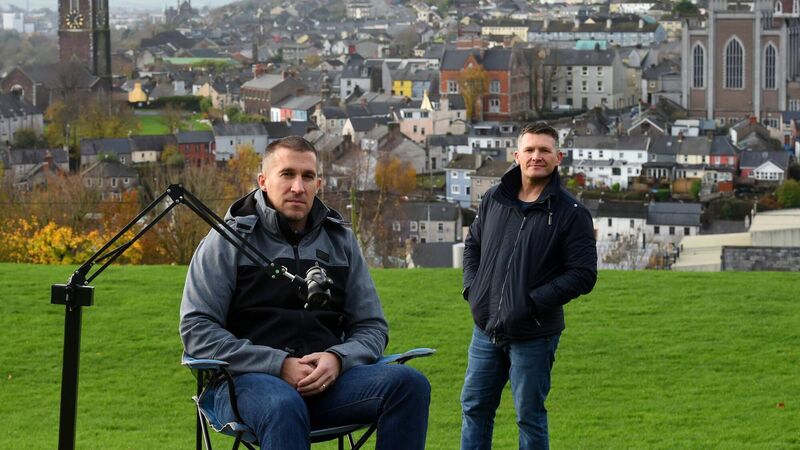The Two Norries: 'When those guards showed me compassion, it struck a chord with me'

The Two Norries: James Leonard and Timmy Long. Picture: Larry Cummins
“I was looking for a way out, and the only one that I could see was death.” Three men are discussing mental health and the importance of recognising patterns of trauma in childhood in order to understand your behaviour as an adult. No, this is not a livecast of Doctor Phil, it’s a recording of The Two Norries Podcast, fronted by Cork men James Leonard and Timmy Long.
The podcast – which launched last summer – is a way for Leonard and Long to share their own learnings about overcoming addiction with as wide an audience as possible. Both men grew up on Cork’s northside, falling into addiction at an early age. Clean and sober today, they know that the battle to overcome an addiction is not one you can do alone.




